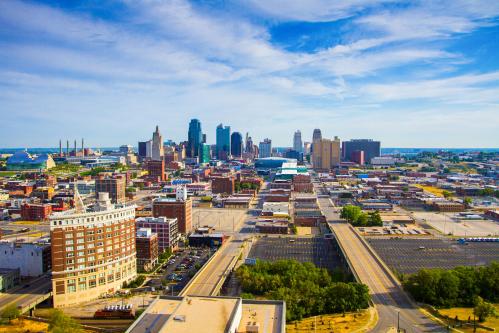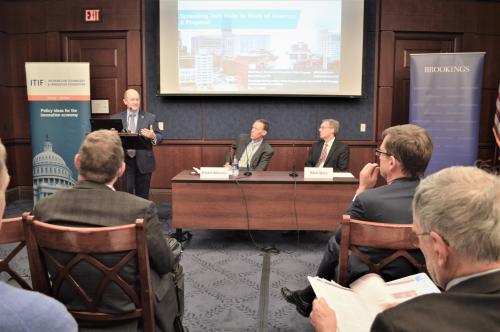To engage further, join us Wednesday, January 29, for a public event at the Brookings Institution on the nation’s epidemic of regional divergence. To attend, register here.
Brookings’ new report on the nation’s rampant, tech-driven regional divides has reanimated many high-level questions about the country’s economic efficiency and competitiveness. Can the United States truly prosper when 90% of its R&D- and STEM-intensive “innovation sector” employment growth takes place in just five “superstar” tech hubs? More voices are beginning to doubt it.
And yet, another—simpler—problem arises from the nation’s regional divides: They are unfair. And they are a social justice issue.
Leave aside the “efficiency” and “competitiveness” parts of the debate. Instead, let’s focus on a stark fact from the new report: that tens of millions of Americans are seriously disadvantaged in job opportunities, income mobility, and health and happiness levels simply by virtue of living in a place other than a “superstar” hub.

Such a geographic view is more often taken up in discussions within cities, at the neighborhood level. Work by our colleague Alan Berube and by the Harvard economist Raj Chetty has studied neighborhood-level economic inequality and its powerful influence on children’s future prosperity. This research has shown that where people live—down to the block level—matters deeply in whether they succeed later in life.
Yet, if one widens the aperture to look at divides across cities and metro areas, the nation’s lopsided map of tech innovation illustrates an intolerable additional cost of regional divergence. Specifically, our hyperconcentrated innovation sector means that Americans of all races reside at a great remove from the most vibrant tech hubs and the social mobility they promise.
Such distance deprives millions of workers who live in the “wrong” places of the enhanced opportunities associated with the innovation sector’s multiplier effects in the “right” places. It especially deprives millions of workers without a high school or college degree of the wage gains that have been shown to improve the incomes of such workers living in those superstar tech hubs. And so, tens of millions of Black, brown, and white workers who don’t happen to reside in Seattle or Boston or San Diego are losing out on the income boosts, supply chain advantages, and training and education opportunities that benefit more proximate workers.
Tens of millions of Black, brown, and white workers who don’t happen to reside in Seattle or Boston or San Diego are losing out on the income boosts, supply chain advantages, and training and education opportunities that benefit more proximate workers.
In that sense, the panorama displayed in the new report of too much growth in superstar cities and too little everywhere else is more than just an efficiency issue: It’s a moral and ethical one. The country needs to widen its nascent conversation about regional divergence to consider that all people—in every city, suburb, and rural county—should have an equal right to contribute to and prosper from the innovation sector’s economic growth.
In short, these big, geographic divides are now a clear part of the nation’s broader inequality and civil rights problems. While most research suggests that within-region inequality accounts for most of the nation’s inequality, several recent studies show that between-region inequality is increasingly becoming a larger part of the nation’s inequality problem.
In that sense, regional divergence isn’t just an efficiency problem, but our newest social justice issue.







Commentary
Regional divergence is more than an economic dilemma—it’s a civil rights issue
January 28, 2020